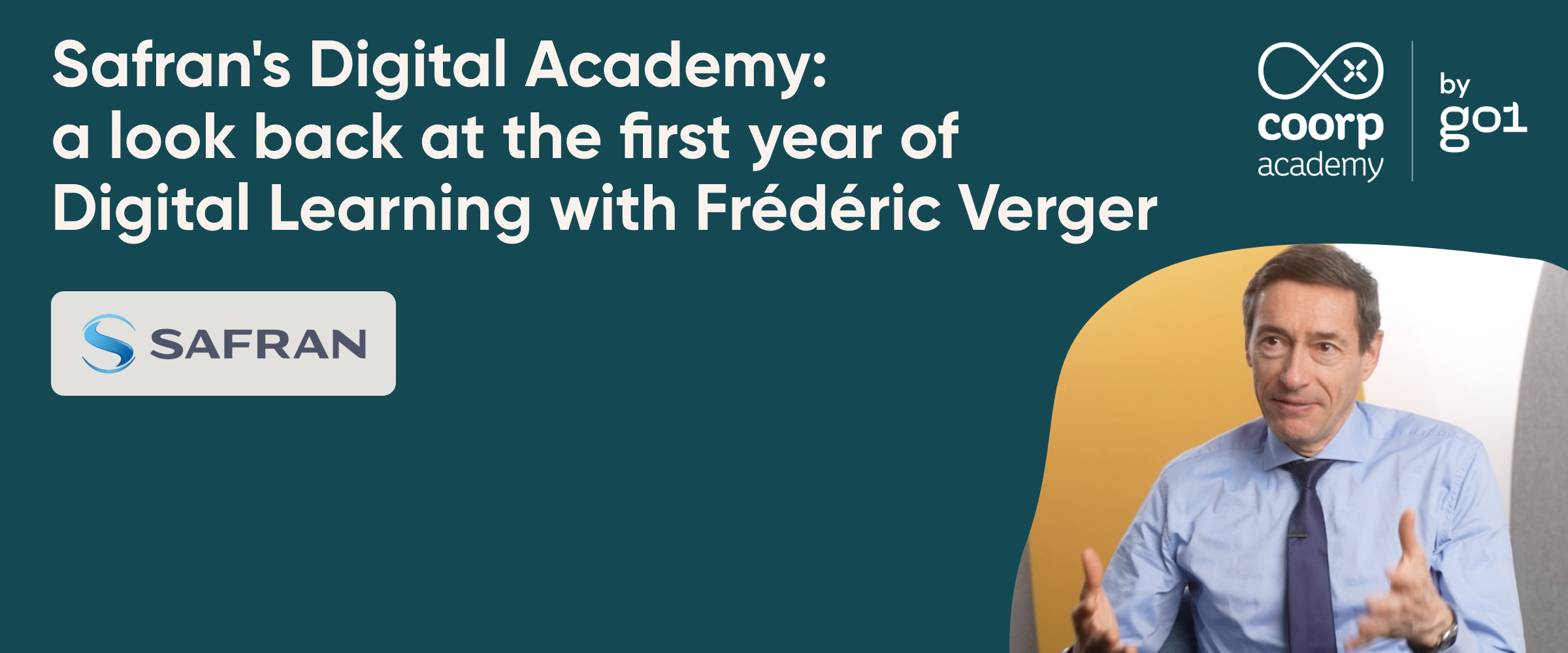Exclusive interview with Didier Noyé, expert in Management
Interview

I’ve just been named manager of a team, how am I supposed to do? What to do just before being in charge? How to drive the performance, but also the well-being and the cohesion of the team? How can I do to communicate well everyday, while knowing how to anticipate and handle the crispations that can occur? To become a manager is a job by itself, and it’s necessary to be prepared for it and to learn continuously.
Didier Noyé is a renowned specialist of change and skills management, and advises companies in their HR development. He published at the Éditions Eyrolles several books on communication and management. Through a partnership with the Éditions Eyrolles, Coorpacademy is about to launch a series of 6 courses, inspired from Didier Noyé’s books, which will come out during 3 months on a regular basis. To know everything on the basics of management.
On this occasion, we were lucky to sit down with Didier Noyé.
How did you, during the course of your career, feel the need to theorize management and to become an expert of it?
I wanted to specialize in this because I worked as a consultant for a lot of different companies, of different sizes and different fields of expertise. I then learned a lot about practical management thanks to very results-oriented experimentations. And I then got interested in research about management. How does an efficient team work? What are the reasons why employees commit – or not – to work? These are examples of research topics. I did then cross my experience in companies and my views on research topics.
We usually present the job of a manager as a job by itself, additional to the one the person is already doing. Do you agree? How would you define management in a few words?
Being a manager means bringing the team to a high level of performance, making it strive to do better. It’s a profoundly human job. You need to create the others’ engagement. Generally, where you’re named a manager for the first time, you’ve been named in a field where you’re already skilled, where you know the job. But sometimes, when you get to a second job as a manager, you can be transferred in a completely different field, where you don’t know a lot about the job in the first place. Which means that you’ll have to focus on the human aspects. And you need to give a complete human dimension to the job if you want to be a good manager.
According to you, what are the soft skills a manager needs to have to manage an efficient, performing team and where people are happy at what they’re doing?
I’ve taught two skills that I deem important.
First of all, listening (and empathy): it’s the keystone of leadership. You need to listen to people in order for them to listen to you.
The second one is positive thinking: what are the employee’s strengths? When you focus on strengths of people, and when you get people to use them, you create engagement. It’s contrary to the usual ways of doing and thinking. If your child tells you he or she had an A in English and a C in Mathematics, there are chances you’ll only focus on the C, inviting your kid to improve his or her level in Mathematics. In management, it’s the contrary: you highlight the qualities of people, and help them give their bests on their strengths. And their weaknesses? Use the strengths to fix problems. If your child has a bad grade in Mathematics, you’ll invite him or her to write an essay on Mathematics, in a very good English. Don’t focus first on difficulties; it’s counter-intuitive. You need to keep a positive thinking.
The first two courses co-edited with Eyrolles and Coorpacademy are released very soon. Can you talk to us about it?
First thing that stroke me was their length: they are short. And this is a real plus! Thanks to new web usages, learners like to focus on one precise topic meeting their needs, while going straight to the point. Content is clear, interesting and solid.
I particularly appreciated the different parts: key learning factors, the “did you know that?” section or the learner’s path to go from a chapter to another as soon as you answered correctly.
What did you like in the creation of this collection “the Basics of Management” with Eyrolles and Coorpacademy?
I think it is an interesting formula. It makes you go straight to the point and allows learners to follow courses at their pace while choosing their points of interest. From the moment learners are acting in their own trainings, you must be able to answer their questions with multiple entry points. Moreover, there is a strong complementarity between e-learning and books. You can start learning about a topic thanks to e-learning and then go deeper in this subject with books. Or the opposite, according to what learners/Internet users want.
Thank you Didier!
Thanks to you!


